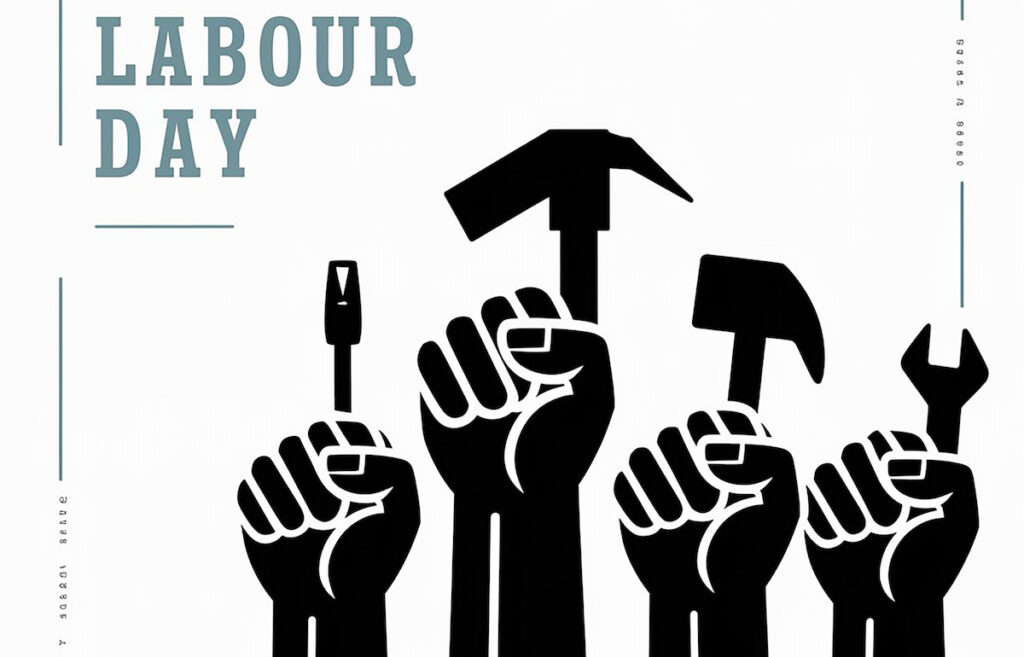Labor Day means different things to different people. While Labor Day is rooted in the history of the labor movement and the celebration of American workers, it has also come to symbolize something else entirely: the unofficial end of summer. For many Americans, Labor Day marks the last long weekend of warm weather, the closing of swimming pools, and the final barbecues before fall sets in.
Originally though, it was a day to honor the contributions of American workers and the labor movement, which played a crucial role in securing many of the rights and protections that workers enjoy today. Understanding the history of Labor Day provides valuable insight into the struggles and triumphs of the American workforce. Depending on who you are, Labor Day might mean one thing or the other, so let’s have a look at how each came about.
Labor Day: A Tribute to the American Worker
The origins of Labor Day can be traced back to the late 19th century, a time when the Industrial Revolution was transforming the American economy. Factories, railroads, and other industries were booming, but this rapid growth came at a cost. Workers, including children, often toiled for 12 to 16 hours a day under dangerous and unhealthy conditions, with little to no job security or rights. Wages were low, and the working class struggled to make ends meet.

The labor movement began to gain momentum. Workers organized into unions to demand better pay, safer working conditions, and reasonable hours. Strikes and protests became common as workers fought for their rights. One of the key events in the labor movement was the Haymarket Affair in 1886. A peaceful rally in Chicago supporting proposals for an eight-hour working week turned violent after a bomb was thrown at police, leading to the deaths of several police officers and civilians.
This event underscored the intense conflict between laborers and those in power, and is the reason International Workers Day is celebrated on May 1st (the first day of the strike). It was a while before serious changes were made, but the movement gained momentum from this time. The Pullman Strike in 1894 was also instrumental in shaping national labor laws. After that, Labor Day became a federal holiday.
Labor Day was intended to be a day of rest and celebration for workers, recognizing their contributions to the country’s prosperity. Parades, picnics, and other festivities became traditional ways to observe the holiday. It was also a time for the labor movement to reflect on its achievements and set goals for the future.

Labor Day: The Unofficial End of Summer
So how did a holiday dedicated to workers become such a significant cultural marker for the end of summer? The connection between Labor Day and the end of summer is partly due to timing– in the same way that July 4th is seen as a massive summer party. This holiday falls in early September, just as vacations are wrapping up, and schools across the country are preparing to start the new academic year.
For families, Labor Day is often the last opportunity to take a vacation or enjoy summer activities before the routine of school and work resumes. This timing has naturally led to the association with the end of summer fun. This cultural significance of Labor Day is also shown in how people talk about it. Phrases like “one last summer hurrah” and “the last taste of summer” are often used to describe the weekend plans.

The holiday was always a day for leisure and celebration, and its early observances included parades, festivals, and picnics. These activities became ingrained in the way Americans celebrate the holiday. Over time, these outdoor celebrations expanded to include barbecues, beach trips, camping, and other quintessential summer activities, further cementing Labor Day’s role as the summer finale.
Another tradition to emerge is that Labor Day has also become a major shopping event. Retailers across the country offer significant sales during the weekend, drawing in consumers who are eager to take advantage of the discounts. This shopping spree is often seen as the last big retail event of the season, adding to the sense that Labor Day is a transition point.

Sports also play a role in the holiday’s significance as the end of summer. Labor Day weekend is closely linked with the start of the NFL season, with many teams playing their first games around this time. College football also kicks off, and baseball enters its final stretch before the playoffs. For sports fans, it’s the start of a new season of excitement, marking the shift from summer to fall.
Whether it’s a final beach day, a backyard barbecue, or a short road trip, there’s a collective understanding that Labor Day is the last chance to savor the warmth and freedom of summer before the responsibilities of the fall season take over.
So Which Is It for You?
You may lean into one more than the other, but there’s no reason it can’t be both, in the same way that at Thanksgiving and Christmas, many are just as concerned with the modern holiday as they are with the original message.
The core message of this holiday remains the same: a tribute to the hard work and dedication of American workers. It’s important to remember its origin, and the struggles that workers endured to secure the rights we often take for granted– I mean who doesn’t love a weekend?
It’s also a time to reflect on the ongoing challenges facing workers, such as wage inequality, job insecurity, and the need for better work-life balance. Labor Day is not just a day off; it’s a reminder of the importance of workers in building and sustaining the nation.

For better or worse, the holiday has also become an end-of-summer celebration, and there’s absolutely nothing wrong with that. If for you, the essence of Labor Day is about having a great time with loved ones, then that’s just great. The dual meaning of the holiday – as both a tribute to labor and a seasonal marker – gives it a unique place in American culture. But as we fire up the grill, head to the beach, or hit the sales, it’s worth remembering that Labor Day is also a day to honor the hardworking individuals who have contributed to the nation’s success.
Whatever Labor Day means to you, we hope you have a fantastic weekend this year. If shopping is your thing, we’d like to help out with a discount code to get you $10 off when you spend $150*. Simply enter the coupon code: LABORDAY24 when you make your purchase on our website. For more ideas, take a look at our Instagram @wearewordans.
*Only for customers in the USA and Canada during Labor Day weekend 2024.












